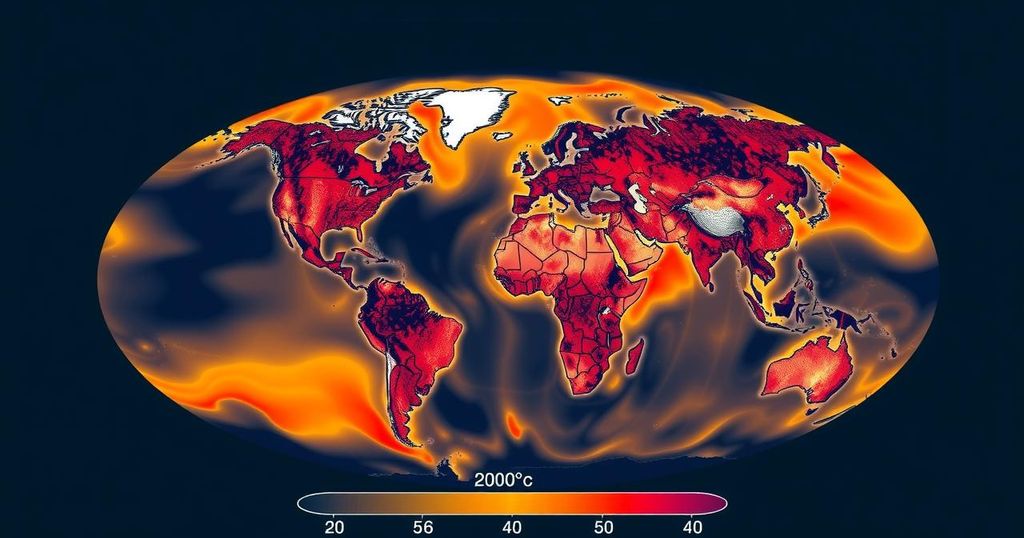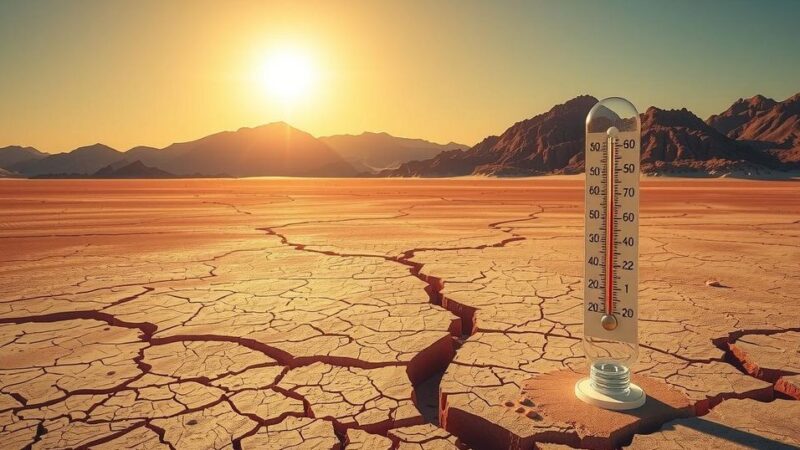The UN Report predicts a potential rise in average global temperatures by 3.1°C by 2100 unless immediate and substantial efforts to reduce greenhouse gas emissions are undertaken. The findings urge nations to enhance their commitments significantly, aiming for a 42% reduction in emissions by 2030 and a 57% reduction by 2035 to maintain the 1.5°C limit set in the Paris Agreement. The report emphasizes the critical need for global cooperation across all sectors to realize these ambitious targets and avert catastrophic climate outcomes.
A recent report from the United Nations underscores the dire consequences of insufficient global efforts to combat climate change, projecting a potential increase in the average global temperature by 3.1°C by the year 2100 if current greenhouse gas emissions trends continue. This alarming prediction emerges from the UN’s Emissions Gap Report, which emphasizes that the target of limiting global warming to 1.5°C, established during the Paris Agreement in 2015, is increasingly unattainable without immediate and robust action from nations worldwide. The report highlights the stark reality that countries have not adequately fulfilled the commitments they made to reduce emissions. Instead, many have prioritized military development and the extraction of fossil fuels over meaningful environmental measures. Recent climate events, including severe flooding in the Sahara Desert and recurrent tropical storms affecting various regions, serve as reminders of the worsening climate scenario. Among the report’s key findings is the assertion that for the 1.5°C target to remain within reach, an essential 42% reduction in annual greenhouse gas emissions must be realized by 2030, with a subsequent goal of a 57% reduction by 2035. The call to action is underscored by the UN Environment Program’s Executive Director, Inger Andersen, who stated, “Climate crunch time is here.” The forthcoming COP29 climate conference in Baku presents an opportunity for nations to initiate discussions regarding their updated climate action plans, which should align with the stringent 1.5°C objective. Nonetheless, without significant efforts and global collaboration, it is projected that nations will continue to struggle to meet emission reduction targets. The report stresses the critical need for innovative technologies and strategies, particularly in sectors such as renewable energy and forest conservation, to rectify the current trajectory of increasing emissions and avert substantial climate-related disasters.
The United Nations has been a pivotal entity in addressing climate change through various international agreements, most notably the Paris Agreement, which aims to limit global warming to well below 2°C while pursuing efforts to restrict the temperature increase to 1.5°C. However, the recent Emissions Gap Report reveals a concerning trend of rising greenhouse gas emissions alongside inadequate national commitments to reduce them. This situation presents a crucial challenge, as it underscores the necessity of immediate and coordinated action from all nations to meet the set climate goals and mitigate the impact of climate change, which is increasingly evident in extreme weather patterns and environmental disasters reported globally.
The UN’s Emissions Gap Report serves as a clarion call for immediate action against climate change, highlighting that without drastic reductions in greenhouse gas emissions, global temperatures could rise dramatically by the end of the century. The report’s recommendations for significant cuts in emissions, coupled with enhanced global cooperation and commitment to sustainable technologies, underscore the urgency of addressing this global crisis. As the international community prepares for key discussions at the upcoming COP29 conference, the path forward must focus on collaborative efforts to meet established climate targets and avert potential disasters associated with climate change.
Original Source: cleantechnica.com






